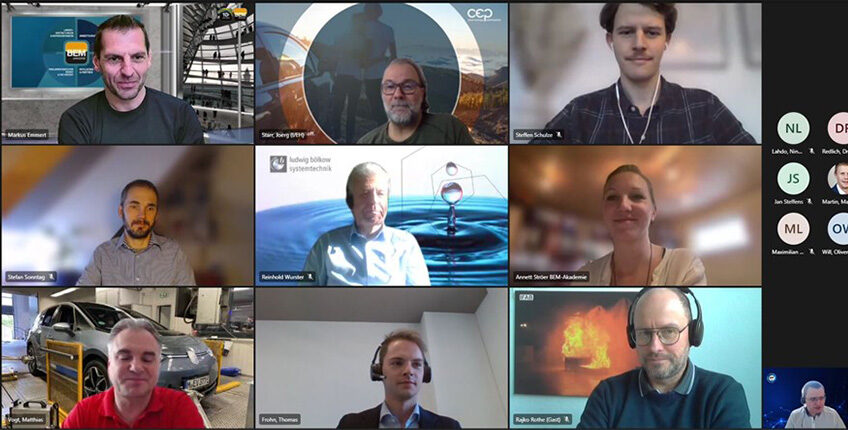Questions regarding the safety of battery and fuel cell vehicles abound. A meta-study by NOW GmbH is now developing factual and scientifically substantiated answers. The first results are scheduled to be available in summer 2022.
Electric scooters and e-cars, charging columns in supermarket car parks and fuel cell-powered waste collection vehicles are now part of our everyday lives. The market ramp-up of electric mobility is in full swing and brings with it a multitude of open questions and challenges.
It is especially the users that critically question the new vehicles and the associated infrastructure and make comparisons with conventional vehicles. The media attention given to isolated incidents, such as fires involving electric vehicles, creates uncertainty among all those who already drive the vehicles or are considering purchasing them. The absence of relevant statistical data makes a factual discussion difficult.
Furthermore, increasingly extreme environmental events, such as floods, heat, particulate matter or noise pollution, raise questions about potential environmental impacts. In order to address this in a factual and scientifically grounded manner, NOW GmbH has commissioned TÜV Süd Industrie Service GmbH to prepare a meta-study that will provide answers to the most important questions, including: What dangers and hazards actually arise with battery and fuel cell electric vehicles? How should the risk be classified in comparison to conventionally powered vehicles?
The study examines the entire usage phases – including driving, charging, refuelling and parking as well as maintenance and other applications in daily use. It will focus on topics such as the possible consequences of accidents, fire safety in relation to the various energy sources, hydrogen storage in the vehicle, electrical safety in connection with high-voltage battery systems as well as in terms of electromagnetic compatibility.
The aim of the study is to identify potential dangers and hazards and to compile related information on the technical, regulatory and normative status. Open questions and the corresponding responsibilities are to be identified, and recommendations for action are to be provided to research, industry and politics, as well as to all those who implement and use electric mobility.
In order to involve all relevant groups of stakeholders in the preparation of the meta-study, an advisory board was established. The participants are:
- Allgemeiner Deutscher Automobil-Club e.V. (ADAC – German Automobile Club)
- Bundesverband eMobilität e.V. (Federal Association for eMobility)
- Clean Energy Partnership (CEP)
- Deutsche Gesetzliche Unfallversicherung e.V. (DGUV – German Social Accident Insurance)
- Deutsche Kommission Elektrotechnik Elektronik Informationstechnik (DKE – German Commission for Electrical, Electronic & Information Technologies)
- Gesamtverband der Deutschen Versicherungswirtschaft (GDV – German Insurance Association)
- Institut für angewandte Brandschutzforschung (IFAB – Institute for Applied Fire Protection Research)
- Ludwig-Bölkow-Systemtechnik GmbH (LBST)
The drafting of the study commenced with a kick-off on 19 January 2022. Contents will be compiled by around mid-2022 and subsequently published and made available to trade professionals.


